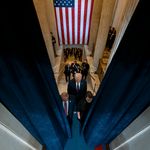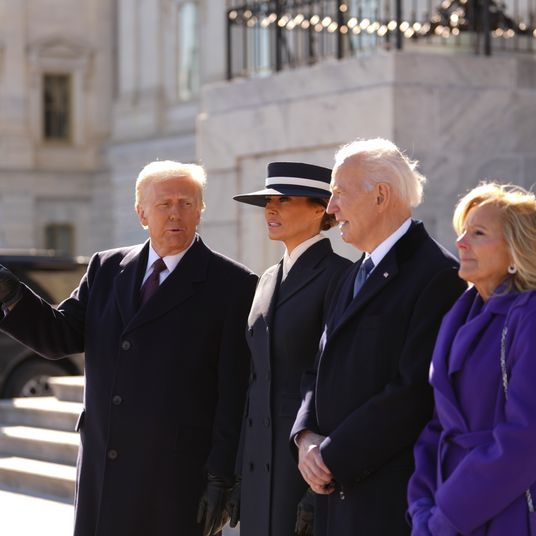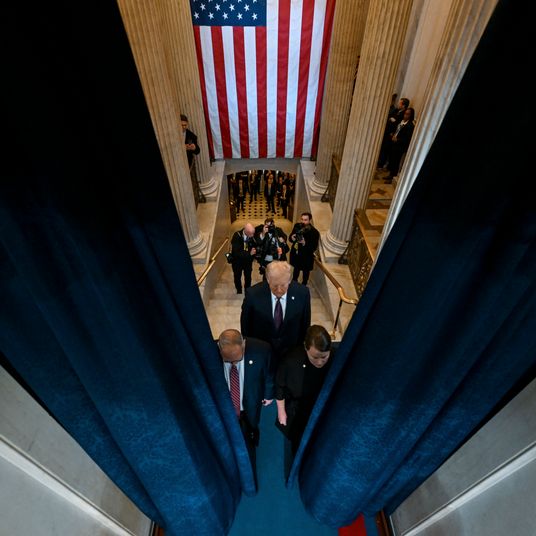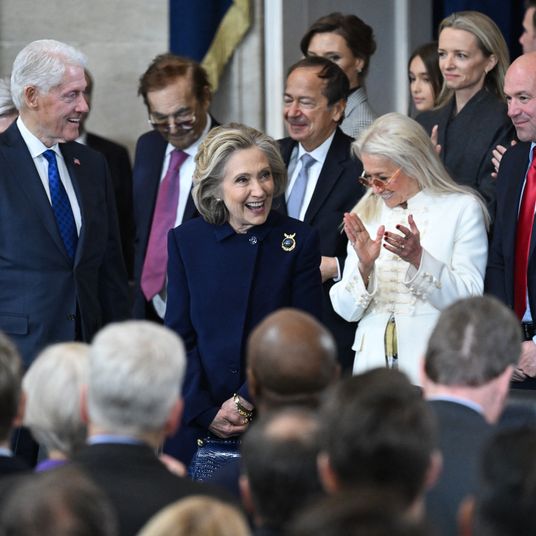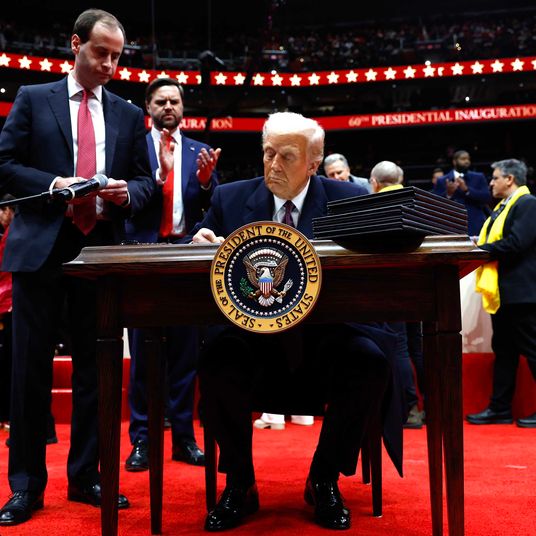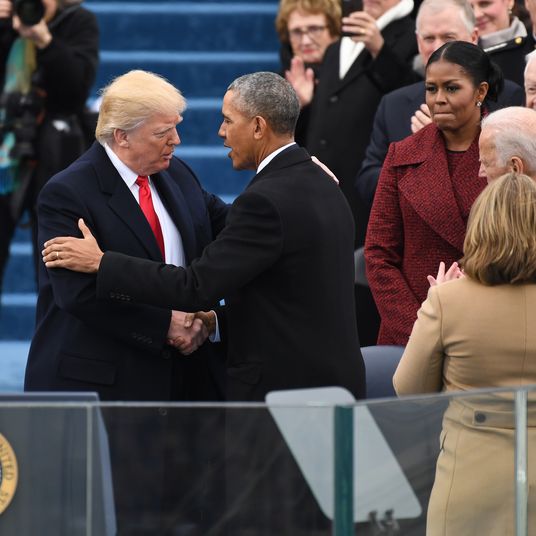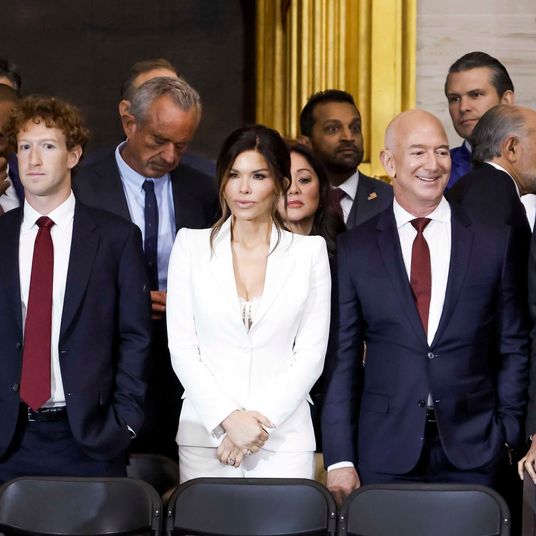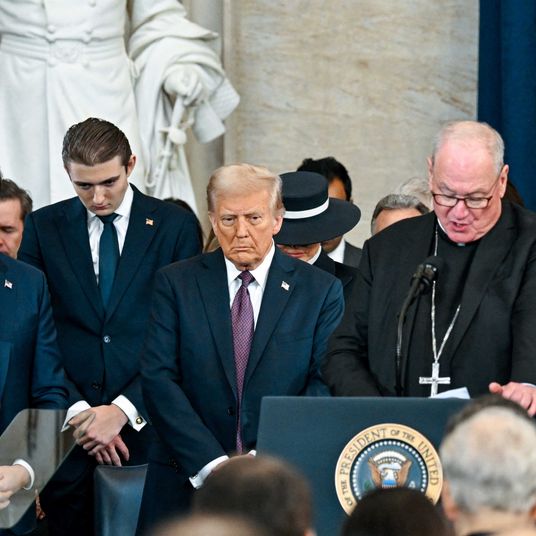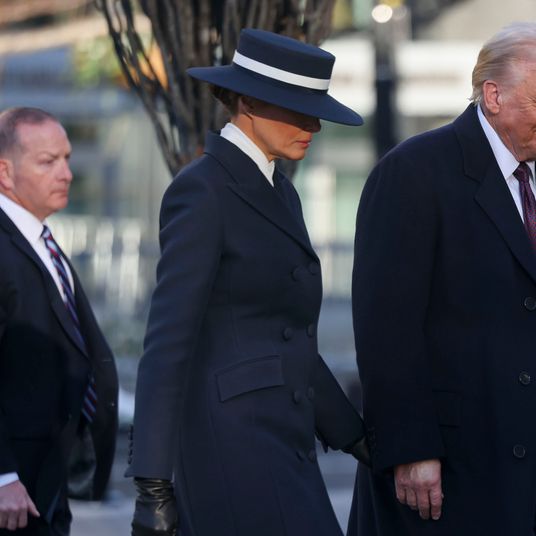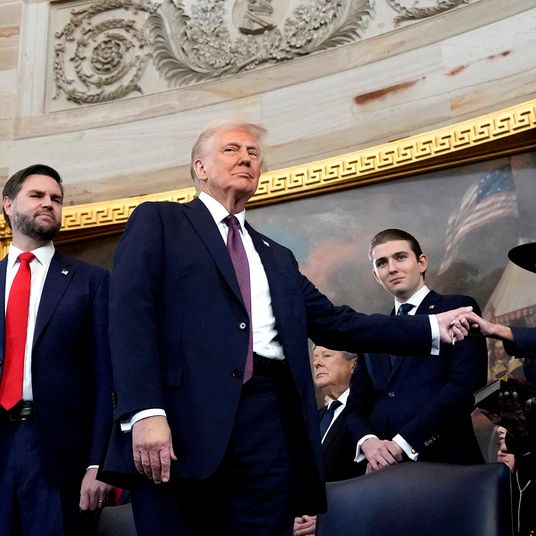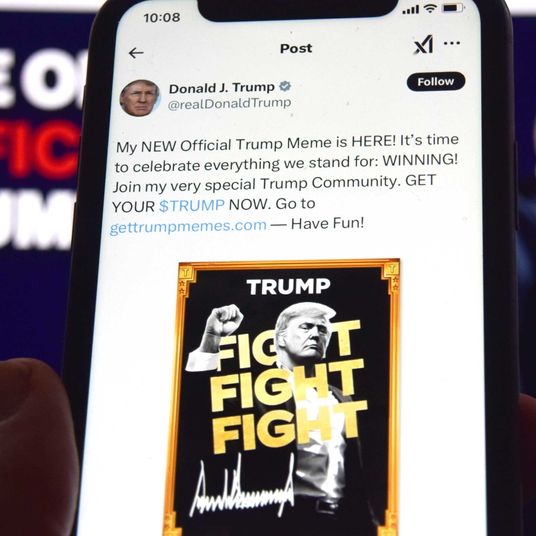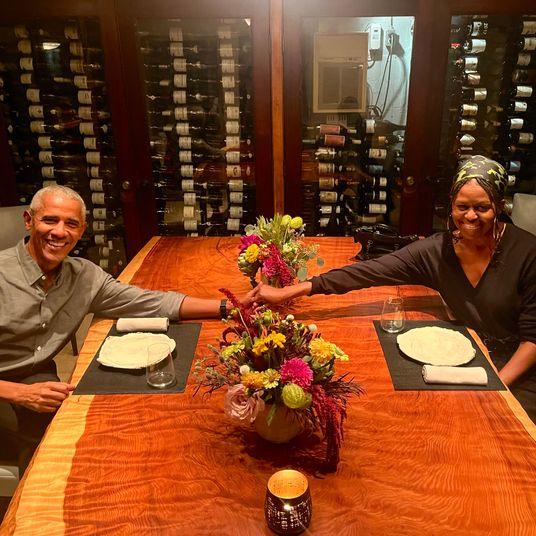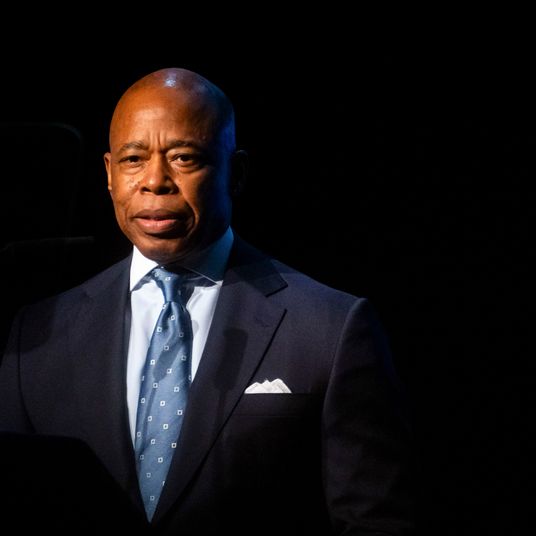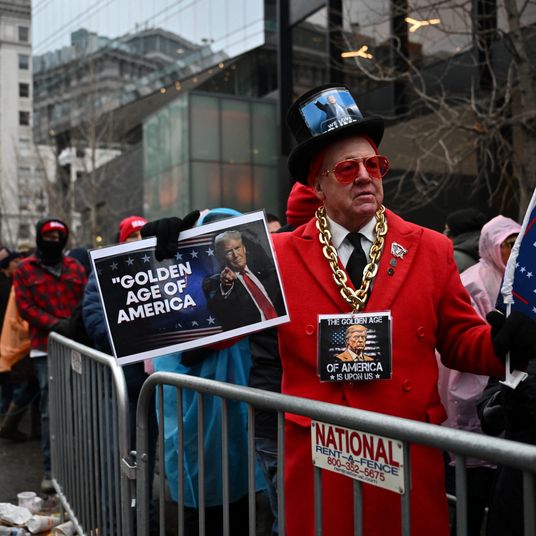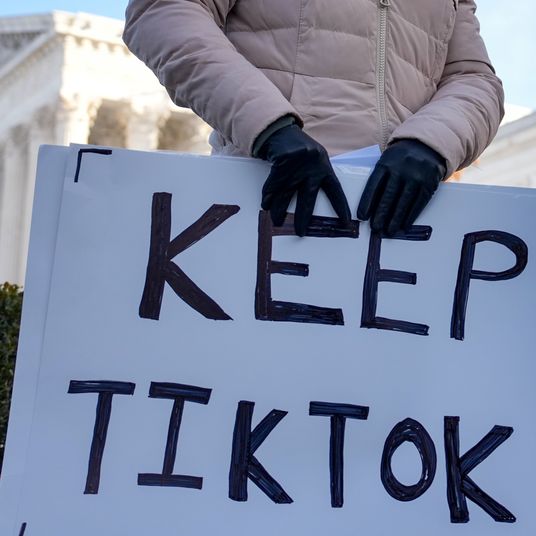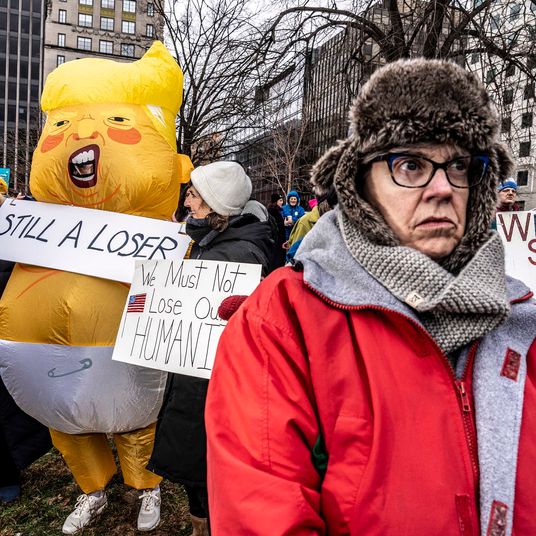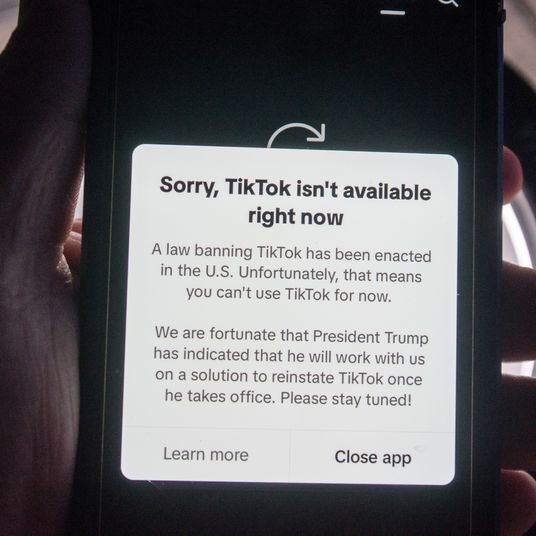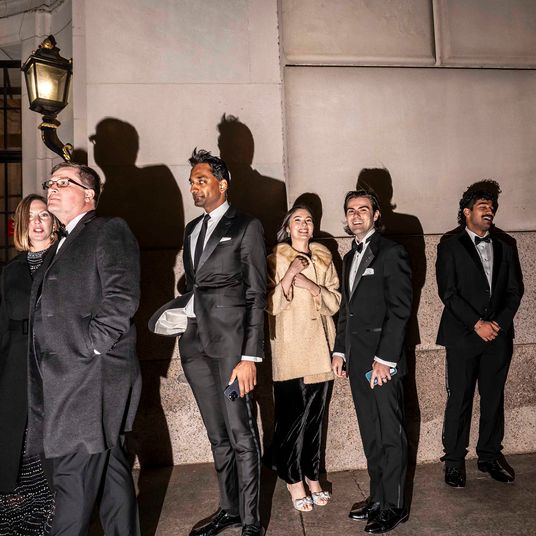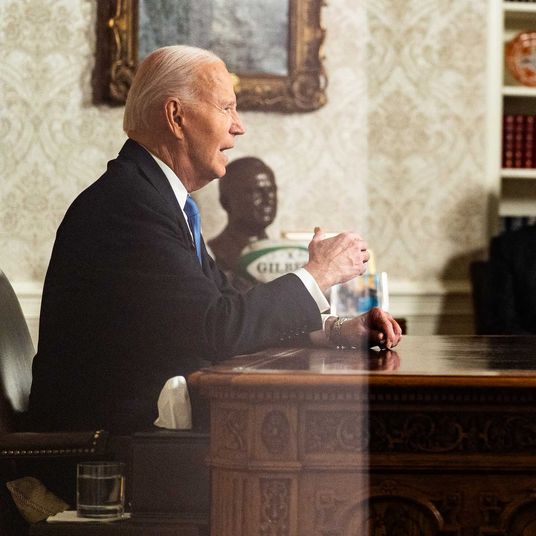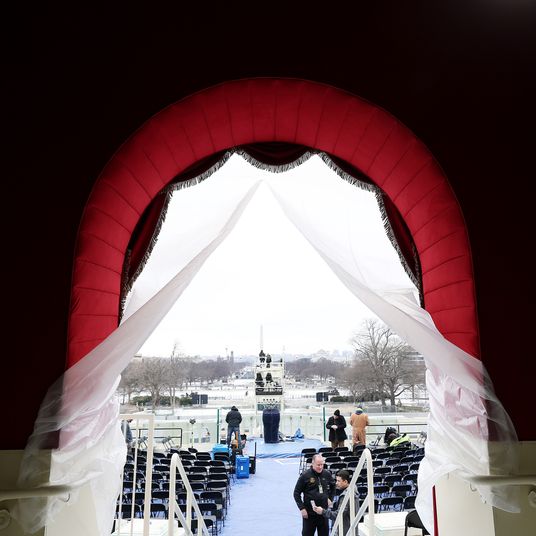
Photo: Getty Images
Yesterday we compared Barack Obama’s Philadelphia address on race in America to Mitt Romney’s recent last-ditch speech on faith. But as the New York Times points out, it’s really more like JFK’s 1960 speech on religion. It came at a time when Democrats, and probably even Republicans, were bored with the current political dialogue and thirsting for some honesty and something new to talk about. Indeed, yesterday and last night, hordes of people were writing and discussing. The overarching question: Will it matter? Will it change the course of Obama’s candidacy? Will it change the course of America? A lot of that is up to the press, not the people. But even the editorial boards of The Wall Street Journal, the Times and the New York Post professed not to know what the effects would be.
• Maureen Dowd was pleased that Obama was confident enough to walk into a gray area, regarding his relationship with Reverend Wright, and step down from his pedestal for a moment. [NYT]
• The Wall Street Journal editorial board was completely unimpressed: “His ideas are neither new nor transcendent,” they groused. [WSJ]
• Dan Balz said the speech, a test of leadership, went beyond a political rescue mission and will live on beyond his presidency. [Trail/WP]
• Mary Katharine Ham writes that Obama failed to move toward postracialism by not condemning Wright strongly enough. [Town Hall]
• David Corn says the speech was a sophisticated discussion of race “unlike any delivered by a major political figure in modern American history.” [MojoBlog/Mother Jones]
• Michael C. Dawson called the speech “brilliant,” but worried that it was too little, too late. [Root]
• Craig Crawford thinks Obama would have been better served to separate a broader discussion of race from Reverend Wright’s still controversial statements. [CQ Politics]
• John Nichols applauds Obama for doing what the media has failed to do: put Wright’s sermons in context. [Campaign Matters/Nation]
• Jennifer Skalka said Obama speech was a “battle cry for a new generation,” challenging blacks and whites to transcend their distrust of one another. [Hotline/National Journal]
• Roger Simon thinks the speech failed to address the fact that Wright’s comments were repugnant, regardless of the broader theme of coming together. [Politico]
• Michael Goldfarb said that Obama revealed himself to be simply another liberal political candidate who blames the past for the problems of today. [Weekly Standard]
• Glenn Greenwald calls it the first time a political figure has addressed a controversial topic without pandering, condescending, or relying on clichés. [Salon]
• John Dickerson says that though it wasn’t without its problems, the speech was cool, reasoned, and likely impressive to Democratic viewers. [Slate]
• Ezra Klein was impressed with the honest way Obama discussed America’s history with race but is unsure whether the speech will be politically beneficial. [American Prospect]
• Jay Carney feels the speech was “breathtaking and unconventional” because it went against everything a conventional politician would be expected to say. [Time]
• Andrew Sullivan was blown away, writing that he has never loved or had such great hope for America than now. [Atlantic]
• Michael Crowley believes Obama was successful in reaching liberals and elites but possibly failed to win over working-class white voters. [New Republic] —Dan Amira
For a complete guide to presidential candidates Hillary Clinton, Barack Obama, and John McCain — from First Love to Most Embarrassing Gaffe — read the 2008 Electopedia.


